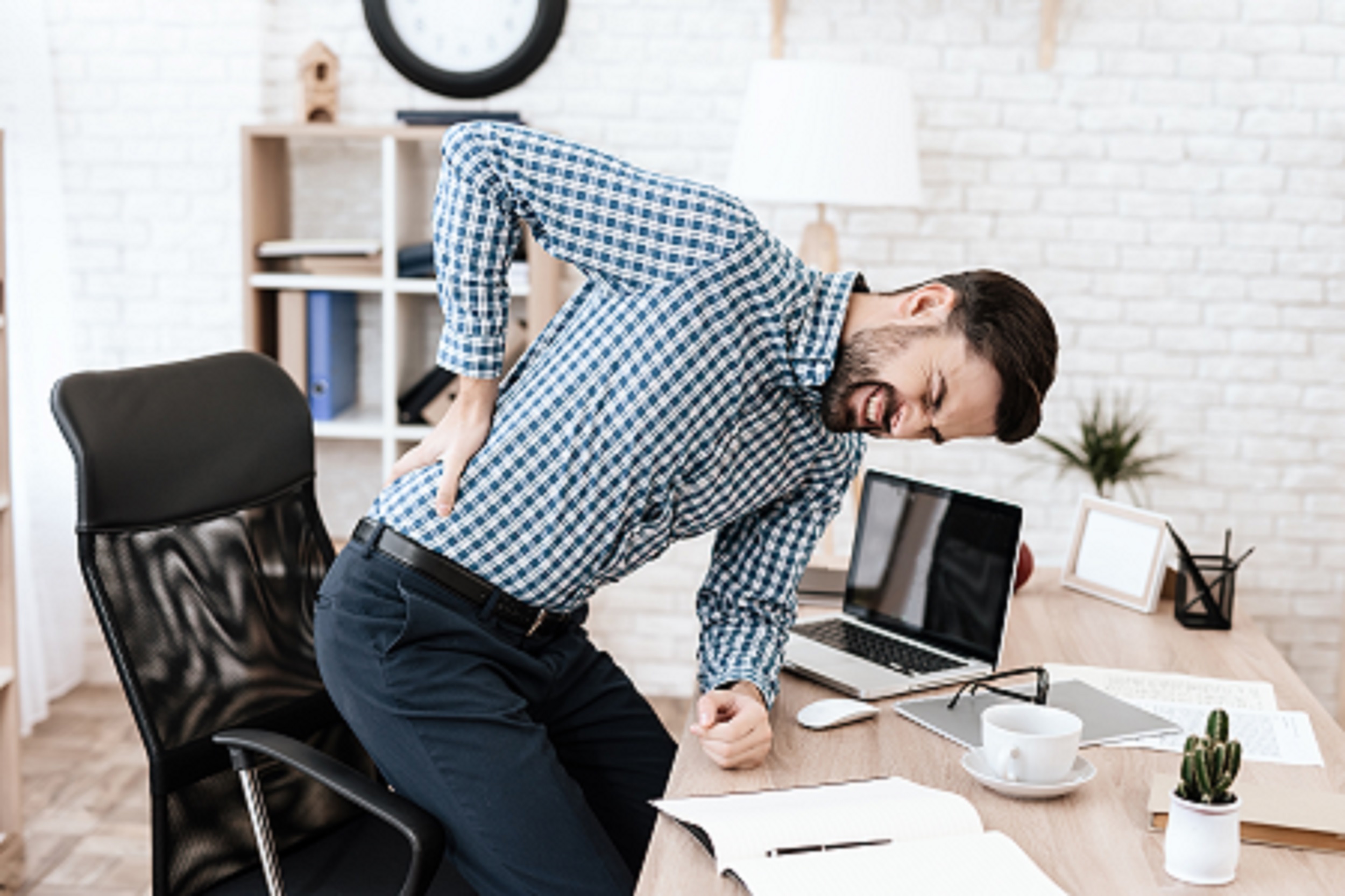The Many Possible Causes of Low Back Pain

One of the most common medical complaints is of low back pain. More often than not, back pain can be avoided by making a few modifications to our daily activities.
- When the onset of back pain is sudden, usually after some kind of strenuous exercise, it is called acute back pain.
- When the back pain is persistent and lasts for more than 3 months, it is called chronic back pain. It is to be noted that pain that lasts longer than 3 days warrants a visit to an orthopedic doctor.
Common Causes of Back Pain
While low back pain can have a number of possible causes, a few of the common ones are detailed below.
Strain or Sprain
- Strain refers to an injury to the muscles of the back, usually sustained during a high intensity exercise routine or some other similar kind of strenuous activity.
- When the ligaments in the back sustain injury, it is called a sprain.
- Sprain/strain can also be incurred by the improper lifting of heavy loads.
Herniated Disc
- In between the vertebrae, discs are present which provide cushioning to the vertebrae.
- Due to age or injury, these discs might bulge and impinge on the nerve roots in the vicinity. This condition is called a herniated disc and it results in pain.
- While this can happen to any disc along the vertebral column, the ones in the lower back are more commonly affected.
Spinal Stenosis
- Osteoarthritis is a condition in which the cartilage around the bones breaks down due to ageing. It can affect the spine along with the hips and knees.
- When it affects the spine, osteoarthritis can lead to the space within the spine getting restricted. This once again can compress the spinal nerves and lead to pain.
- The condition is called spinal stenosis and the low back and neck are the areas commonly affected by it.
Osteoporosis
- Osteoporosis is a condition in which new bone formation slows down and old bone tissue does not get replaced in time. As a result, bone density reduces and the bones become weak.
- When the bones become brittle due to osteoporosis, they have a tendency to fracture easily.
- When the fracture happens along the spine, it will result in back pain.
Spondylolisthesis
- When the vertebrae shift from their original position and press on the nerves nearby, it can result in pain. This condition is called spondylolisthesis.
- As the vertebrae in the lower back are more prone to this, it often causes low back pain.
- While ageing is one cause for spondylolisthesis, other possible causes include sporting activities like gymnastics and football.
Everyday Activities That Increase Risk of Back Pain
- Jobs that involve moving or lifting heavy loads increase a person’s chances of developing back pain. This does not mean a desk job is any better as being seated for long durations too is a risk factor for low back pain.
- Carrying heavy bags on a daily basis increases the risk for low back pain. This is because it is the back that takes up the load more than the arms.
- Embarking on a sudden intensive workout is best avoided. Sometimes people miss out on their weekday workouts due to commitments and try to compensate for it by overdoing during the weekends. This is not a good alternative and often results in aches and pains – the most common being back pain.
- Maintaining a good posture is essential for avoiding low back pain. Slouching while standing or sitting has to be avoided.
Also Read: Common exercises to reduce back pain
Low Back Pain Treatment
- The orthopedic doctor will usually advise resting the back. If the pain is bad, pain killers will be given. Warm compress may also be advised.
- Once the pain has subsided, back strengthening exercises should be started under the supervision of a physiotherapist. Do not continue with any activity that seems to cause back pain.
- Corticosteroid injections might be given for intense back pain. These injections are administered near the nerve roots and are given only when absolutely necessary to help the patient deal with pain (usually sciatica pain). It is important to note that while they help with the pain, they do not heal the area.
- Surgery will be suggested as a last option when none of the other treatment modalities provide relief. The surgery varies depending on the cause of the back pain.
Back Pain Prevention
- Regular physical activity with strengthening exercises for the back is the best way to prevent back pain. Yoga too is effective.
- Maintaining ideal weight too reduces the risk of back pain. People who are heavy around the abdomen have an increased risk of back pain as their back takes up a lot of the weight.
- Stop smoking. Smoking affects blood flow to the spinal discs thus increasing the risk of backpain.
- Talk to a doctor about the best sleeping posture for back pain. Sleeping on the side is usually recommended. Also clarify with the doctor about the kind of mattress that has to be used when a person is suffering from back pain.
- Eat a nutritious diet that is rich in calcium and vitamin D. This will help reduce the risk of osteoporosis.
- Bend the knees when lifting heavy objects. Also hold the object close to the body so that the back is not supporting the entire load.
- For desk jobs, remember to stand up and walk around at regular intervals. Also check if your body posture is correct when you use the computer.
